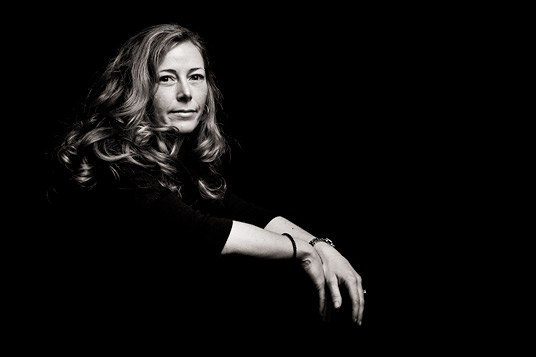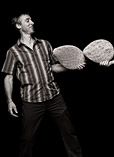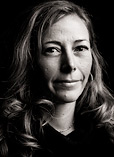
Stephanie Hampton
The microscopic world (with Tosha Comendant)
THEMES: Technology, Definitions, Science & Research | WORKSHOP: Natural History & Research
Biography
Stephanie Hampton
Stephanie Hampton is an aquatic ecologist with research interests ranging from animal behavior to community and ecosystem ecology. She joined the National Center for Ecological Analysis & Synthesis (NCEAS) as Deputy Director in May 2006 after several years on faculty at the University of Idaho. Her core expertise is in freshwater plankton ecology. Primarily her research focuses on discerning the direct and indirect effects of climate change and human pollutants on plankton communities through statistical analysis of long-term data sets from lakes, with recent forays into marine studies. She also has engaged in research on the sociology of scientific collaboration and the communication of science to the public and policy makers.Conversations:
Workshops:
Transcript
Tosha Comendant: I think your perspective is unique in that the rest of us generally study bigger stuff. You're studying this small stuff. How do you think that difference has affected your perception of natural history?
Stephanie Hampton: Well, I have to admit that I felt a little bit alienated when people were equating natural history so much with the outdoors. Because I think that that connection with the outdoors is important for me and for my work; to connect those organisms to the place that they came from and the larger system. But, I also feel really strongly that people who spend all of their time in boats and who most people would recognize as the experts on this system, they don't have the feel for the microscopic world that I think drives the system. And I have that feel for it.
That's why I keep pushing a little bit on the importance of not tying natural history so strongly to being outdoors. A lot of the natural history that you should be learning about a system we need to be indoors to study. Until we get some special glasses that allow us to go out in the field and look at the water and see what's going on in the microscopic world. I actually think that this is one of the ways that we can engage more diverse communities. I think that there are a lot of people of all different ethnicities and all different backgrounds who didn't grow up hiking; I didn't really grow up hiking and camping. That's not their reason for going out and learning about nature. But if they find something really fascinating in the lab and they like spending their time in the lab, they also can have a connection to nature and to organisms. I would argue that my connection with plankton is just as strong as somebody else's connection with a forest. And that happened in the lab.


